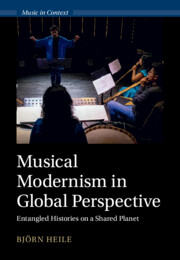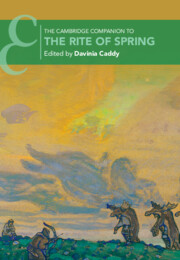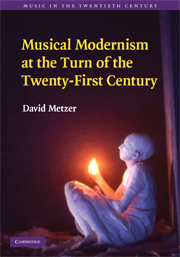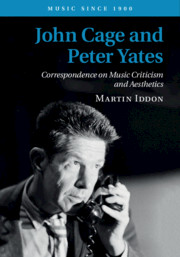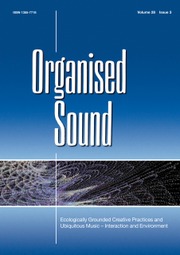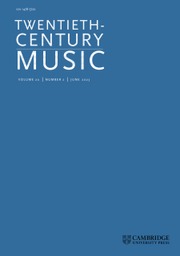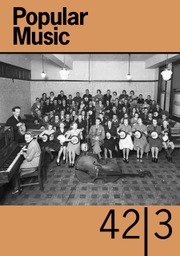Musical Modernism in Global Perspective
In the first study of the global dimensions of musical modernism, Björn Heile proposes a novel theory according to which musical modernism is constituted by a global diasporic network of composers, musicians and institutions. In a series of historical and analytical case studies from different parts of the world, this book overcomes the respective limitations of both Eurocentric and postcolonial, revisionist accounts, focusing instead on the transnational entanglements between the West and other world regions. Key topics include migration, the transnational reception and transfer of musical works and ideas, institutions such as the International Society for Contemporary Music (ISCM) and composers who are rarely discussed in Western academia, such as the Nigerian-born Akin Euba and the Korean-German Younghi Pagh-Paan. Influenced by the interdisciplinary notion of 'entangled histories', Heile critiques established dichotomies, all the while highlighting the unequal power relations on which the existing global order is founded.
- Focuses on the musical intersections and exchanges between different world regions, questioning binary oppositions such as the West and its Others, or centre and periphery
- Proposes a novel theoretical model according to which musical modernism is constituted by a global diasporic network of composers, musicians and institutions
- Includes non-Western composers rarely discussed in Western academia, such as Nigerian-born Akin Euba and Korean-German Younghi Pagh-Paan
Product details
May 2024Adobe eBook Reader
9781009491730
0 pages
This ISBN is for an eBook version which is distributed on our behalf by a third party.
Table of Contents
- List of illustrations
- Note on the text
- Acknowledgements
- Introduction
- Part I. Rethinking the Historiography of Musical Modernism:
- 1. Echoes of the rite in Latin-American music and literature
- 2. Exile, migration and mobility
- 3. Institutionalised internationalism: the International Society for Contemporary Music
- Part II. Two Case Studies:
- 4. Akin Euba: African art music, intercultural composition and creative ethnomusicology
- 5. Younghi Pagh-Paan: 'composer rooted in an Asian thought-world'
- Bibliography.

